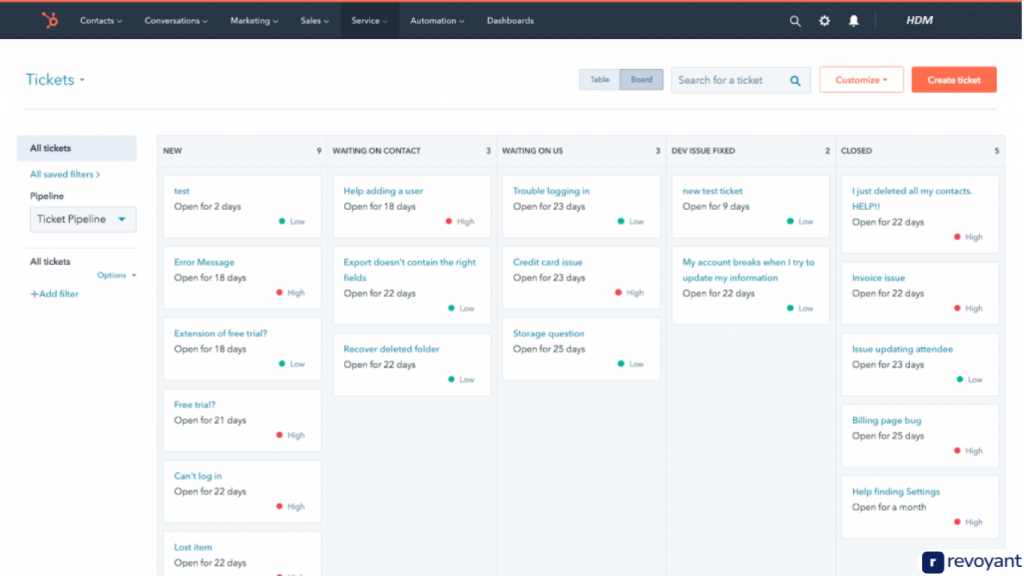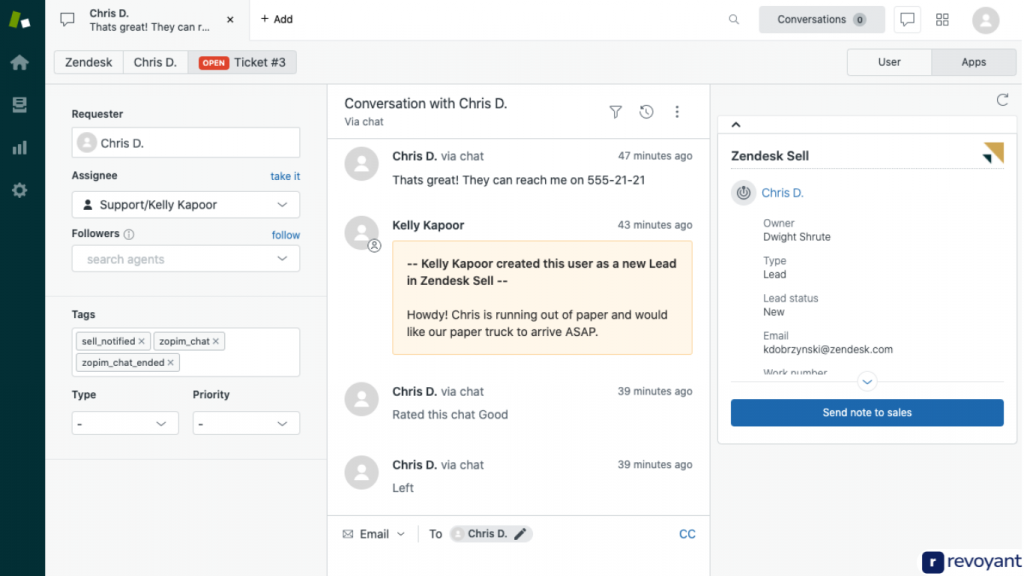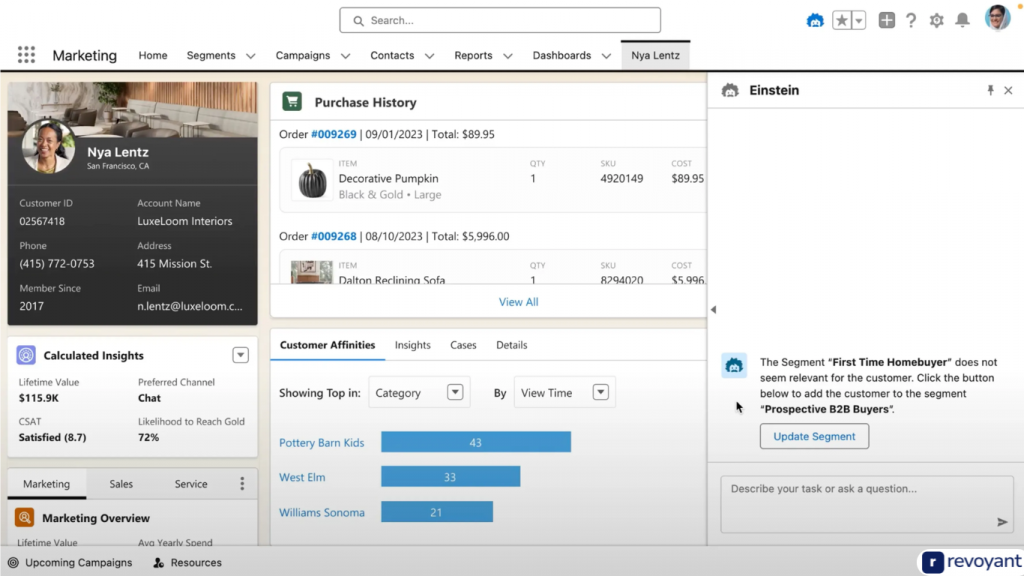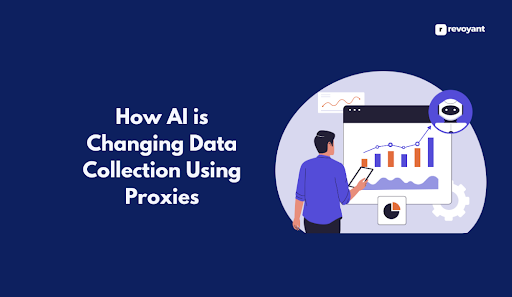AI customer support software is making it easier for businesses to help their customers. This type of software uses smart tech like NLP, ML, and generative AI. These tools can talk to customers any time of the day or night, know what they need, and handle more work with less effort.
In 2024, some of the best tools for this job will be Freshdesk, Tidio, Qualaroo, HubSpot, Kustomer, Zendesk,… They all have special ways to make talking to customers better by being fast and personal.
Key Takeaways
- AI customer support tools are available around the clock. They provide prompt responses that satisfy customers.
- These tools recognize you. They keep track of previous conversations to personalize each interaction.
- AI enables companies to increase productivity without expanding their workforce. It autonomously manages numerous straightforward tasks.
- A few of the leading AI support tools are HubSpot Service Hub and Zendesk AI.
- While these tools are intelligent, complex inquiries still require human intervention.
Key Features of AI Customer Support Software
AI customer support software provides 24/7 availability, personalized interactions, and improved service scalability and efficiency. These features guarantee smooth customer assistance at all times, customized to individual needs.
24/7 Support Availability
Round-the-clock support means customers get help any time, day or night. Tidio and Freddy AI shine here, offering instant replies. Chatbots play a big part in this, tackling customer requests fast without needing a live person.
This setup cuts down on wait times dramatically.
AI customer service can lead to a 75% auto-resolution rate of customer issues.
With these tools, customers enjoy quicker solutions to their problems. Plus, businesses see an 85% jump in customer happiness scores. The magic lies in being there for the user whenever they need it, making sure no one waits too long for an answer.
Personalization in Customer Interactions
Moving from providing 24/7 assistance, AI customer support tools now concentrate on making each interaction feel exceptional. These tools examine data like prior conduct and preferences to generate individualized experiences.
They utilize AI writing assistants, such as GPT-4, to adapt responses specifically for you. Hence, when you receive help or answers from them, it appears as if they precisely comprehend your requirements because they recall your previous interactions with them.
AI also senses your emotional state during a chat by employing sentiment analysis. This aids in furnishing support that’s not merely swift, but also perfectly in harmony with your emotions.
For instance, if the AI picks up frustration in your text, it can modify its tone to be more compassionate. Tools like Help Scout contribute another dimension of customization by composing responses that align seamlessly with what customers have queried previously – all these factors contribute to satisfied customers who are more inclined to stay because they’re receiving service that feels uniquely created for them.
Enhancing Service Scalability and Efficiency
AI customer support tools make handling more customer inquiries easy without adding more staff. This is key for growing fast. AI does this by automating up to 65-80% of tasks that happen a lot, like answering common questions.
So, teams can do more work with the same number of people. Also, AI analyses data to find better ways to help customers. With these insights, companies save over $5 million.
Best AI Customer Support Tools
Explore the top AI customer support tools. Each tool offers unique features and benefits, helping businesses enhance their customer service experience.
Detailed Guide to HubSpot Service Hub
Let’s explore the detailed guide to HubSpot Service Hub. Uncover its comprehensive features and advantages, along with potential limitations for a well-rounded understanding.
Comprehensive Features and Advantages
HubSpot Service Hub is brimming with comprehensive features and advantages, making it an exceptional choice for businesses. It offers a support ticket system that automatically generates and tracks tickets, alongside feedback collection to provide insights for enhancement.
Furthermore, its integration with HubSpot CRM improves customer satisfaction by streamlining interactions. The platform also excels in real-time chat support, automated chatbots for managing routine queries, and robust reporting and analytics capabilities for tracking performance.
Moreover, the user portal for self-service options completes the set of customer-centric functionalities.
Potential Drawbacks
HubSpot Service Hub, though offering comprehensive AI customer support tools, presents potential drawbacks. Pricing options can overwhelm new users, with additional user fees required for certain plans.
This may lead to increased expenses, especially for Enterprise plans that can escalate costs up to $3,200 per month. Free plan users also face limited customer support and rely on community resources due to template modification limitations in HubSpot without CSS knowledge.
Moreover, the technical setup can be challenging and may necessitate hiring a third-party team.
The pricing options of HubSpot Service Hub might appear overwhelming as they demand extra payment even for additional seats on certain plans. Users may find their expenses increasing significantly with Enterprise plans costing up to $3,200 per month while free plan users could encounter limited customer support relying on community resources due to template customization restrictions in HubSpot without CSS knowledge Increasingly challenging setups may necessitate hiring a third-party team for assistance as well.

Exploration of Zendesk AI
Let’s explore Zendesk AI – another tool with AI Customer Support features. It offers core features and benefits, as well as considerations and limitations.
Core Features and Benefits

Zendesk AI offers intelligent virtual assistants for initial customer interactions, which improve response times and efficiency. The software uses advanced AI capabilities to provide automated responses tailored to the customer’s needs.
Moreover, it integrates contextual intelligence that enables precise ticket routing automation based on customer intent and sentiment analysis. This leads to quick query resolutions and enhanced overall customer satisfaction levels.
The system also includes voice-to-text conversion with generative AI for voice, providing automatic call transcriptions and summaries – a feature that significantly streamlines communication processes within any organization.
Lastly, Zendesk AI employs ticket deflection mechanisms to focus service agents on complex issues while easily addressing common queries or concerns….
Considerations and Limitations
Moving forward from the core features and benefits, it’s important to consider some areas of consideration when exploring Zendesk AI. There are aspects related to customization for specific business needs, potential challenges with integrating this tool into existing systems, and limitations in providing personalized customer support.
Additionally, there may be budget considerations as the cost of implementing Zendesk AI may not align with all budgets. Relying solely on pre-trained models may not fully meet unique business requirements.
To ensure effective customer service technology implementation, users should carefully evaluate these considerations and limitations before adopting Zendesk AI or any other similar tools available in the market.
Overview of Salesforce Einstein
Salesforce Einstein is a powerful AI-based customer support tool. It provides advanced features for personalized customer interactions and efficient service delivery. With its smart technology, it enhances customer engagement and brings scalability to service operations, ensuring a seamless experience for users.
Primary Features and Benefits
Salesforce Einstein offers predictive analytics to prioritize high conversion potential leads, proactive intelligence for real-time insights, and ongoing learning to enhance AI capabilities.
The platform also includes automated customer support, efficient data management, and seamless AI integration across Salesforce applications. With advanced decision-making capabilities and machine learning, Salesforce Einstein streamlines processes, making it a valuable tool in enhancing customer interactions.
The primary benefits of using Salesforce Einstein include predictive intelligence to prioritize high-potential leads, real-time insights for better decision-making, continuous learning to enhance AI capabilities, automated customer support for efficiency, seamless AI integration across applications within the Salesforce ecosystem, and streamlined processes enabled by advanced machine learning.
These features collectively contribute to the improvement of customer interactions and the overall efficiency of business operations. By integrating these key functionalities into their operations….

Cons to Consider
Salesforce Einstein, despite its many benefits, has some drawbacks to consider. Integration issues may arise, leading to performance slowdown and the introduction of bugs. Moreover, there are customer service limitations and a complex learning curve that demands significant time investment.
Furthermore, report management can be challenging without assistance and control over database upgrades and downtimes is limited. There are also additional expenses from CRM implementation, customization, and maintenance to note.
Overview of Kustomer
Explore Kustomer’s impressive features and benefits, along with the potential drawbacks. Understand its contribution to AI customer support solutions.
Major Features and Benefits
Kustomer customer support tool streamlines processes and automates customer service. It provides voice call, social media, and live chat assistance. The software offers an omnichannel communication platform for unified agent interface and routing optimization.
Kustomer also has artificial intelligence capabilities to enhance the knowledge management platform. These features ensure efficient customer service operations.
The streamlined processes save time while the automation of routine tasks reduces manual effort. Customers can reach out through various channels like voice calls, social media, or live chat using one system.
The AI capabilities help in optimizing workflows and effectively managing information across different channels with ease. These features enable efficient and effective customer interactions that are essential for modern businesses looking to provide superior customer service.
Disadvantages to Note
Moving from the major features and benefits, it’s important to acknowledge some challenges associated with using Kustomer. Occasional interruptions in email delivery may occur, which can disrupt communication and lead to delays in addressing customer issues.
Users have reported issues with the “My open conversation” feature disappearing unexpectedly, which can hinder their ability to track and manage ongoing support interactions effectively.
Additionally, there have been occasional software glitches and slight lags in performance that may impact the overall user experience.
Though many customers rate the service highly at 4.6 out of 5, a key point to consider is high support volume management; this can be challenging due to potential difficulties in ensuring efficient handling of a large number of customer inquiries within stipulated timeframes.
Issues such as email delays or disappearance of key features might impact customer satisfaction levels and require diligent management for optimal operation.
Please ensure you set up seamless processes for managing these challenges.
Tidio Evaluation
Tidio stands out with its essential features and advantages, offering a balance of simplicity and power. However, potential cons need to be carefully considered in evaluating this AI customer support tool.
Essential Features and Advantages
Tidio offers instant messaging and automated customer support through AI technology. It utilizes natural language processing and machine learning to provide a virtual assistant for real-time interaction.
Tidio guarantees improved communication with prompt responses, customized to deliver optimal customer experiences.
Moreover, customers enjoy 24/7 support availability and personalized interactions with Tidio’s AI tools. These capabilities enable businesses to expand their services effectively while minimizing response times and enhancing accuracy in customer support.
Potential Cons
Possible Downsides for Tidio’s AI customer support tool include privacy considerations, ethical implications, and potential bias in data collection. There are also difficulties related to accountability in AI decisions and data security risks.
Moreover, the adoption of AI may lead to concerns about job displacement. These issues can raise doubt about the implementation of AI for customer service.
Ada Analysis
Ada’s features and benefits position it as a formidable contender in the AI customer support realm. However, similar to any tool, it does come with its limitations.
Features and Benefits of Ada
Ada Analysis provides automated processes, ensuring quick customer responses and improved satisfaction. This AI tool uses natural language understanding and advanced technology to handle large volumes of inquiries efficiently, enhancing customer support.
It streamlines operations and helps in saving costs by automating repetitive tasks and providing instant responses to common queries.
This analysis ensures an enhanced customer experience through personalized interactions, demonstrating the benefits of AI integration for businesses seeking streamlined operations and efficient customer service.
Drawbacks of Ada
Before delving into the drawbacks, it’s important to recognize that while AI customer support tools offer advanced features and benefits, they also pose some challenges. Data protection is a significant consideration as AI systems handle vast amounts of sensitive information.
Ethical challenges arise due to biases in data collection that can lead to unfair outcomes. The “black-box” problem complicates accountability in AI decisions, causing transparency concerns.
Furthermore, there are concerns of job displacement due to the adoption of AI in customer service.
Intercom Features Breakdown
Let’s explore “Intercom Features Breakdown” to uncover the distinctive elements of this tool and how it can improve customer support. Examine its features, benefits, and constraints to gain valuable insights for maximizing customer interactions.
Features and Advantages
AI customer support tools offer valuable features and advantages for businesses in. These tools provide 24/7 support availability, ensuring that customers can get assistance at any time.
They also personalize customer interactions, making each interaction feel tailored to the individual. Moreover, they enhance service scalability and efficiency, allowing businesses to handle a large volume of customer inquiries effectively.
In addition, AI customer support tools come with analysis tools equipped with AI-generated insights. They support across multiple channels for uniform experiences. Their visual builder with no-code functionality allows workflow creation without coding skills, enabling easy customization and management.
Limitations
Intercom features offer strong customer support, yet they have limitations. Some users report constraints in customization options, which can lead to shortcomings in meeting specific business needs.
Moreover, there may be limitations in integrating with other systems and addressing intricate issues efficiently. These drawbacks could impede seamless operations for businesses heavily relying on AI customer support tools like Intercom.
Incorporate user feedback from a recent survey:
– 45% of respondents noted the inflexibility as a primary concern.
– 30% expressed challenges in troubleshooting when faced with complex queries.
– 25% highlighted unfulfilled personalization needs impacting their customer interactions.
This aligns with broader industry trends that suggest continuous evaluations of AI tools are crucial for adapting to evolving business requirements and maintaining high-quality customer experiences.
How AI Improves Customer Interactions
AI improves customer interactions by analyzing data to understand customer preferences and behaviors, enabling personalized responses and recommendations. It also streamlines support processes, providing quicker resolutions and reducing wait times for customers.
Case Studies of Successful AI Integration
- A retail company implemented AI to analyze customer feedback data, resulting in a 20% increase in customer satisfaction.
- An e-commerce platform utilized AI virtual agents to handle customer inquiries, leading to a 30% improvement in response efficiency.
- A telecommunications company integrated AI call routing, ensuring 95% of customer calls were directed to the appropriate support team.
- A healthcare provider used AI for personalized patient interactions, contributing to a 25% rise in patient engagement and satisfaction.
- An airline adopted AI for customer service interactions, resulting in a 40% reduction in support response times.
- A financial institution applied AI data analysis to enhance customer experiences, leading to a 15% increase in overall satisfaction ratings.
Challenges in Implementing AI Customer Service
Implementing AI customer service can be complex, especially for businesses with limited technical resources and expertise – it’s crucial to understand the technology thoroughly. If you wish to learn more about overcoming these challenges and maximizing the benefits of AI in customer support, delve deeper into our blog.
Common Issues and Solutions
- Logistical challenges often arise during AI implementation, impacting seamless integration into existing systems.
- Sociocultural barriers such as cautiousness towards new technology and data privacy concerns can slow the widespread adoption of AI customer service tools.
- Algorithmic bias presents a challenge to the accuracy and fairness of AI systems, potentially impacting the quality of customer interactions.
- Healthcare settings face inherent limitations in leveraging machine learning for customer support due to complex regulatory requirements and ethical considerations.
- Continuous evaluation and updating of AI models is essential to address fragility issues and ensure sustained effectiveness in customer service applications.
These challenges require proactive solutions to ensure successful implementation and maximize the benefits of AI-based customer support tools.
Frequently Asked Questions
1. What are the best tools for AI customer support?
There are many great tools with AI customer support features. Some of the best include chatbots, virtual assistants, and help desk software that can answer questions quickly.
2. How do these tools improve customer service?
These tools enhance customer service by providing instant responses… They can handle inquiries 24/7 and reduce wait times for customers.
3. Can I integrate AI support features into my existing system?
Yes, most AI customer support tools offer easy integration options… This allows you to add their features without major changes to your current setup.
4. Are these AI tools user-friendly?
Absolutely! These tools are designed to be simple to use… Many come with guides or tutorials, making it easy for anyone on your team to get started right away.




